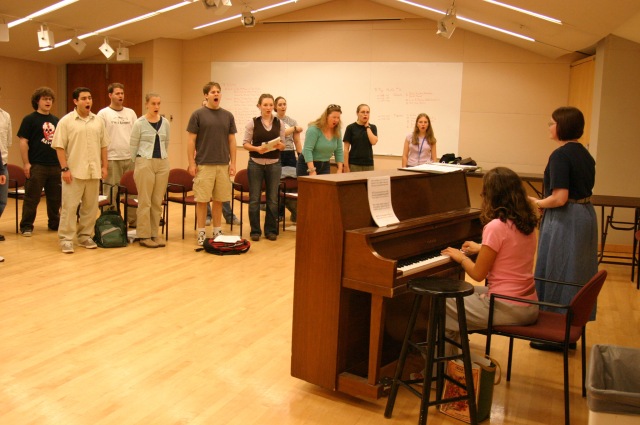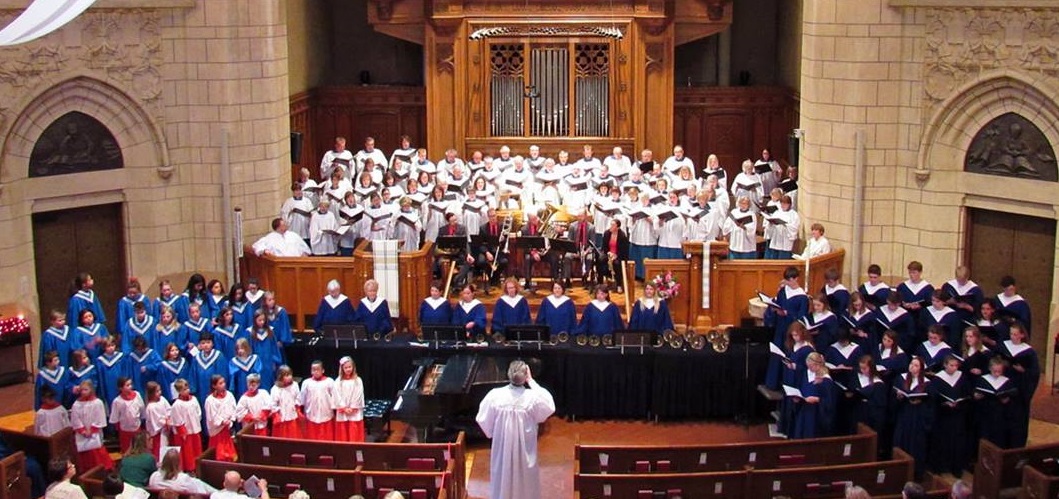The preparation for a musical performance begins from the point after a decision is reached about the feasibility of a performance. People often believe that preparation begins with the rehearsals. I am against this view. I propose that preparation begins with the music director’s assessment of the strength of his choir, vis-à-vis their ability to execute a performance. This assessment relates with the number of people needed, the physical and emotional state of the choristers and such other factors. This is important because in the case of some family or emotional challenges, the music director ought not to invite the victims to rehearsal. The first preparatory step is to visit those concerned, carryout some emotional and psychological therapy that will make them fit to attend rehearsals. When the director has ascertained the availability of a good percentage of his choir, the next step, which is selection, can then follow. I hold this opinion because certain performances or scores are inextricably tied to the number of choristers who should be involved.
Selection
After ascertaining the ability of the choir to execute a performance, the next step is for the music director and his team to select the songs needed. In the case of manual copies, the songs should be xeroxed a little above the number of choristers expected. This will avoid any eventuality of not having enough copies. This will also forestall the distraction associated with singers having to share copies of musical scores during rehearsals. In the case of electronic scores, the director should disseminate the scores to everyone concerned. It is at this stage that the technical unit should also make available all the equipment, both musical and paramusical, that will be needed for the performance. After this, the choir is then set for rehearsals.
Rehearsals
It is my opinion that no performance should hold without a prior rehearsal, no matter how informal it could be. There is no fixed rule regarding the number of rehearsals considered enough before a performance. The nature/technicality of the songs should guide the music director to determine how much rehearsal is enough. As much as possible, the director should create an avenue for a music critic or lover to assess one of the rehearsals. Sometimes, this third party stands to make suggestions that will enable the choir notice certain nuances of the piece being rehearsed. Finally, the dress rehearsal should be recorded and the choir should sit and listen to/watch the recorded version. This has a way of boosting their confidence and preparing their psyche for the actual performance.
Enough relaxation after the dress rehearsal
I recommend that the dress rehearsal should come a night before the actual performance. This rehearsal should not be taken deep into the night. Many hours should be kept for good relaxation of the voice and muscles of the body.
Balanced diet
Few choirs pay attention to diet. The best is the cliché of licking honey and avoiding oily foods. Inasmuch as that is ok, the choristers should eat balanced diet instead of going on honey fast. Much water and sufficient fruits will enhance your preparation for performance.
Costume or outfit
If the choir needs some particular kind of outfit for the performance, the director and the stage manager should begin to plan for them from the first day of rehearsal. The music director should also ensure that the outfits are washed, ironed and made ready, at least three days to the performance. No chorister should wear an offensive outfit. In the case of a denominational performance, know the kind of outfits accepted or forbidden by the denomination. Respect their sensibilities. Be comfortable with what you wear. Avoid high heeled shoes if they would make your footsteps wobble on stage. If this happens, the attention of the audience will be shifted to the person and shoes rather than the performance. Apply light makeup if you would.
Expression and genuflection
Your facial and body expressions must match your words. For uniformity, agree on a uniform genuflection. For instance, if you agree to genuflect at the mention of the Deity, then everyone should genuflect according to the gender specification. Smile when it is appropriate to smile. It would be nice, but not really necessary, to beam a smile at the congregation or audience after the ministration.
A sense of gratitude to your audience
In the case of a concert, the choristers should plan to show courtesy by going over to greet and thank their friends and invitees after the performance. If it is your concert, light refreshment after the performance would be a great idea. However, if you had a special outfit meant for stage effect during the performance, don’t wear it to greet your guests. You need to change to something else. Plan to thank everyone The music director should plan to thank everyone who assisted and ensured the success of the performance. Always begin from those behind the scene. This is not a rule. I just would take them first because many times, they are often forgotten, while the whole credit goes to only those who appeared on stage. Thank those who provided finance, those who swept and made the venue ready and many others who offer advice or did menial jobs.
Also Read: How to learn anything fast and remember it












